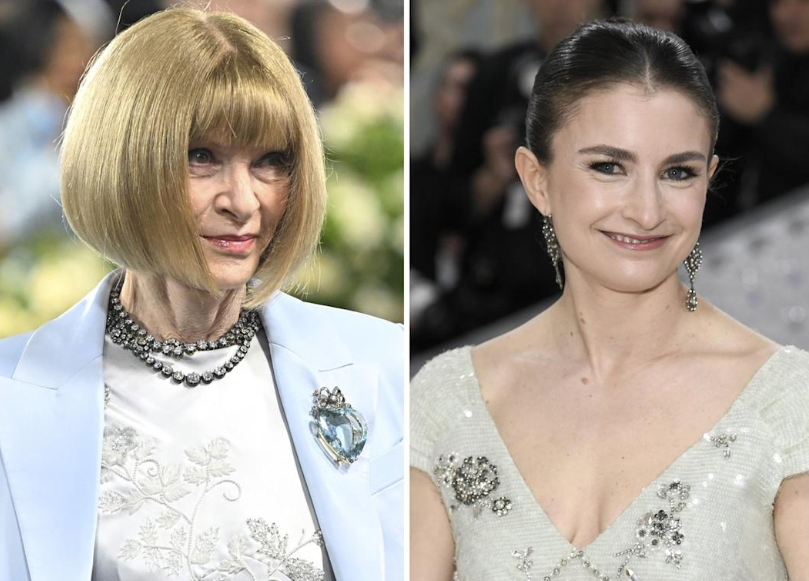After Wintour: Can Chloe Malle Reinvent Vogue for a New Generation?
Condé Nast’s decision to appoint an insider reflects continuity as much as change. The challenge: steering American Vogue through a fractured media landscape while Wintour’s influence still looms large.
Anna Wintour and Chloe Malle
Vogue After Wintour: What Chloe Malle’s Appointment Signals for the Future of Fashion Media
When Condé Nast confirmed Chloe Malle as American Vogue’s new Head of Editorial Content, the news landed like a carefully staged plot twist.
Malle, 39, steps into the role as Anna Wintour, who has helmed the U.S. edition for nearly four decades, transitions into a global oversight position.
For the first time in a generation, Vogue America will not be directly edited by Wintour — and the appointment raises pressing questions about legacy, strategy, and the future of fashion’s most influential title.
A Carefully Chosen Insider
On paper, Malle is both an insider and an inheritor. The daughter of actress Candice Bergen and the late French director Louis Malle, she grew up between Los Angeles and Paris, with a cultural fluency that feels quintessentially Vogue. Her journalistic career spans the New York Observer, The New York Times Style section, and over a decade at Vogue, where she rose from social editor to editor of Vogue.com, and most recently co-hosted The Run-Through podcast.
While her pedigree invites comparisons to Vogue’s long history of society-linked editors, Malle’s trajectory has also been shaped by digital-first journalism. She spearheaded Vogue.com’s coverage during an era of unprecedented change, capturing viral moments such as Naomi Biden’s White House wedding and shaping narratives at the intersection of celebrity, fashion, and politics.
The Wintour Question
For many, however, the real story is not Malle’s appointment but Wintour’s enduring shadow. Wintour may be stepping back from the U.S. edition, but her role as Condé Nast’s Global Chief Content Officer and Vogue’s Global Editorial Director ensures she remains the most powerful voice across the brand. The appointment of Malle — described by insiders as “an insider’s pick” — signals less of a rupture than a recalibration: continuity, but with generational refresh.
The optics are significant. After years of speculation about succession, Condé Nast is effectively splitting Wintour’s power between global strategy and local execution. Vogue America will now have a leader attuned to the rhythms of the U.S. media market, but still firmly tethered to Wintour’s overarching editorial vision.
Vogue in a Fragmented Landscape
The timing of this move cannot be overlooked. Fashion media sits at a crossroads: legacy glossies must compete not only with digital-native platforms but with influencers who command the same cultural authority once reserved for editors.
Print advertising continues to shrink, while social-first content dominates brand strategy. In this climate, the appointment of a head steeped in digital storytelling, yet fluent in Vogue’s heritage codes, feels deliberate.
Malle’s task will be to reconcile these two worlds: preserving Vogue’s aura of exclusivity while ensuring its voice resonates in a media ecosystem built on access, speed, and relatability. The balance is precarious. Vogue must remain aspirational without appearing out of touch; accessible without becoming indistinguishable from the influencers it competes against.
Why This Matters
The appointment of Chloe Malle is more than a change of masthead, it is a case study in how legacy media brands navigate generational transition. Vogue is not merely a magazine; it is a cultural institution, with influence stretching from the Met Gala guest list to the way fashion itself is consumed.
If Malle succeeds, she will not just safeguard Vogue’s relevance but reframe what leadership at a global fashion title looks like in an era where content is both more democratic and more disposable. If she falters, the risk is not simply diminished influence, it is a slow erosion of Vogue’s role as the cultural North Star of fashion.
One thing is certain: in the post-Wintour era, the stakes for Vogue have never been higher.






